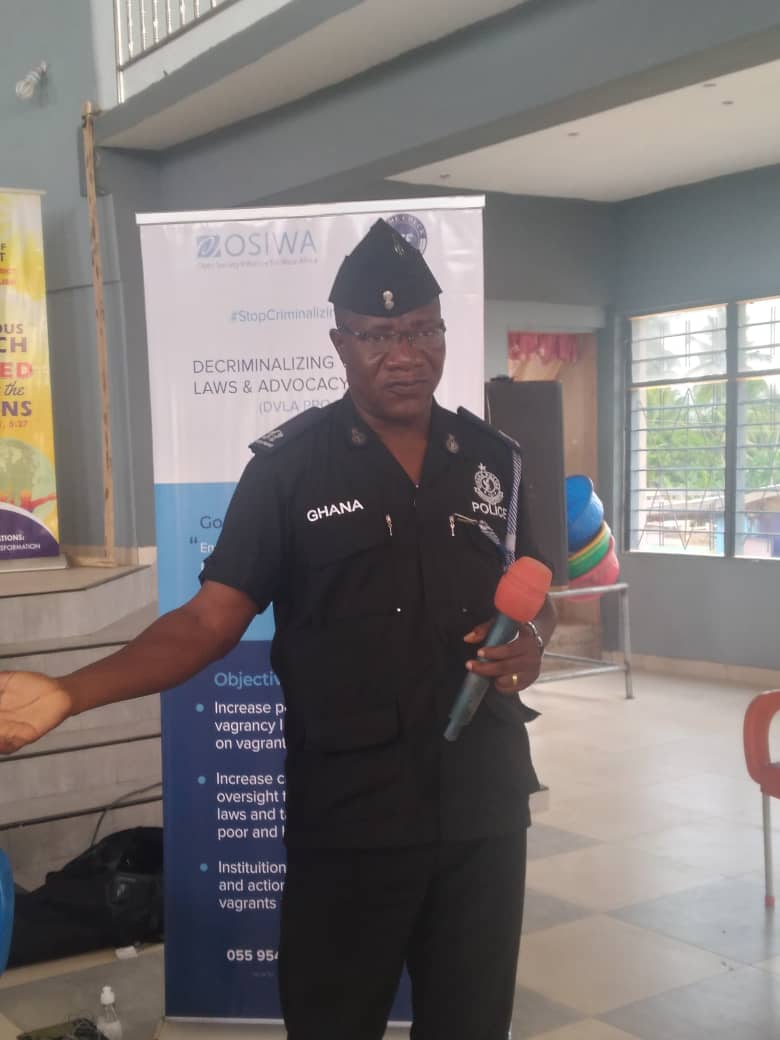Don’t pay for bail – Police Commander advises
The Awutu Breku Police Commander, Superintendent Joshua Semanyoh, has admonished vagrants within his jurisdiction to avoid offering money during bail processes.
“It is not written anywhere that you have to pay the police to bail a suspect,” he said.
Similarly, he admonished police officers who extort money from desperate suspects to desist from the act.
Bail is the process of procuring the release of an accused person from legal custody.
It is free and must be devoid of all fees and charges.
Article 14 of the 1992 Constitution guarantees the liberty of persons (even though this guarantee is not absolute and subject to a number of exceptions). Article 19 provides in subsection 2(c) that an accused person is presumed innocent until proven guilty.
Thus, failure to grant bail to an accused person may be deemed pronouncing guilt on the accused even before they are tried.
Explaining why suspects often end up paying money for their bail, Superintendent Semanyoh said, “The law stipulates that a suspect is kept in police custody for not more than 48hours, but often family of the suspects do not want their brother to spend even an hour in cells, so they become desperate and put pressure on the officers”.

“And when you become desperate, the police officer knows you have become vulnerable, and some may ask for money before releasing the suspect, which is uncalled for,” he criticised.
Superintendent Semanyoh was addressing vagrants at a Decriminalising of vagrancy laws and advocacy project’ at Senya Breku in the Central Region on Thursday, July 8, 2021.
Vagrants were drawn from the scraps dealer’s association, ‘okada’ riders, traders, representatives from the landlords association, Zoomlion, people living with disabilities, drivers unions, and representatives from the traditional council to participate in the programme.
Purpose of the Project
The project is being implemented by the crime prevention organization, Crime Check Foundation (CCF), in partnership with the Open Society Initiative for West Africa (OSIWA).
The first sensitization programme was held at the Accra Metropolitan Assembly.
The others were held in the Ashiaman Municipal Assembly, La Nkwantanang Madina Municipal Assembly and the Weija-Gbawe Municipal Assembly.
The project aims to address District Assemblies bylaws, which appear to have sent poor people into prison.
The laws include the imposition of exorbitant fines that vagrants are unable to pay.
It is being implemented by the crime prevention organization, Crime Check Foundation (CCF), in partnership with the Open Society Initiative for West Africa (OSIWA).
The project will sensitize 1200 vagrants about their rights and responsibilities to prevent any misunderstandings with the assemblies.
It is scheduled from May 2021 to May 2022 in 12 metropolitan assemblies in three regions – Greater Accra, Ashanti, and Central.
“It has come about because of the draconian District Assemblies bylaws, which appear to have sent poor people into prison and continue to oppress the poor,” Executive Director of Crime Check Foundation, Ibrahim Oppong Kwarteng, told The Ghana Report in an interview.
According to him, Colonial masters used “draconian laws” to police spaces.
“So, much as the streets must be kept clean and people must follow the laid down rules and regulations, the assemblies also need to live up to their mandate and not punish poor people for their blunders,” Mr Oppong Kwarteng noted.
He explained that most of the bylaws mandate assemblies to provide social amenities that will make life worth living for poor people, but they fail to provide them.
“It is increasingly becoming a human right issue because of the economic condition of poor people, these are petty offenders who have not committed any criminal act, but because of their inability to pay these fines, they end up in jail,” he lamented.
Project Duration
The one-year project from May 2021 to May 2022 will be rolled out in 12 metropolitan assemblies in three regions – Greater Accra, Ashanti, and Central.
“We have begun with the mapping, and we are engaging with the various district assemblies in the selected regions and the leadership of vagrants,” said the Executive Director of Crime Check Foundation, Ibrahim Oppong Kwarteng.
The project will sensitize 1200 vagrants about their rights and responsibilities to prevent any misunderstandings with the assemblies.
“In order not to seem as we are inciting vagrants against the district assemblies and the central government, we will also educate them about their duties as patriotic citizens,” he added.
Monitoring and Evaluation
To monitor the progress and effectiveness of the project, a contact centre will be created after the sensitization to address the concerns of vagrants at the partnering organization, Crime Check Foundation.




This should be extended to the 5 northern regions for us to be enlightened about the law.